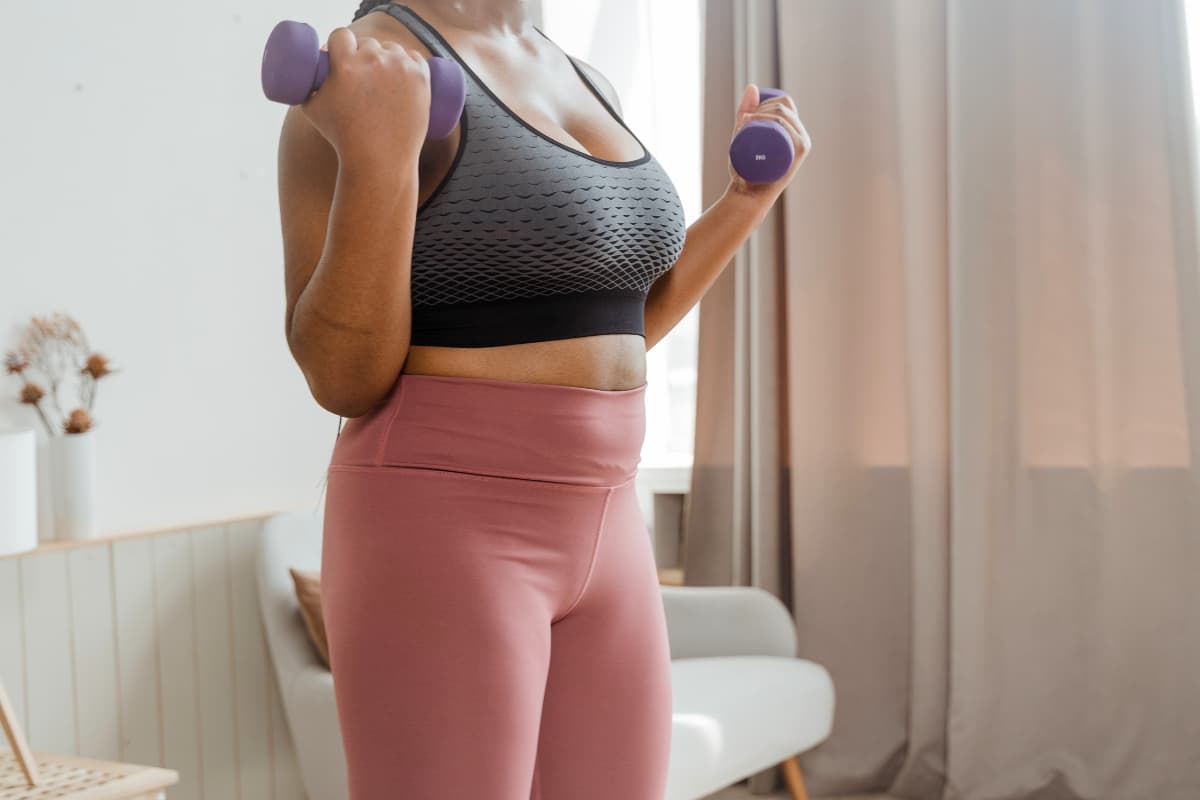The Year of Small Changes

This post contains affiliate links.
This year ditch the habit of making big resolutions that almost no one keeps. Recent studies have shown that implementing small but meaningful changes throughout the year makes all the difference in achieving your goals. Not sure where to start? We rounded up a few of our favorite tiny but mighty challenges. Tackle them every month and end this year even better than when you started.
The Power of Starting Small
Data from the University of Scranton shows that only eight percent of people stick to their new year’s resolutions. Ninety-two percent of us are destined to fail and feel bad about it. Even worse, for seventy-five percent, the failure comes quickly – just two weeks after we start.
Multiple studies have shown that people are more successful at making small changes, also known as micro-habit change, than large ones. This approach works for everything from being more focused to losing weight. As an added bonus, small changes bring about big, positive changes in other areas of your life. Over time, this chain of micro-habit changes adds up to achieving a larger, more difficult goal, like losing weight, sleeping better, or reducing menopause symptoms.
4 Healthy Habits You Can Make Small Changes Towards Now
We canvassed our community for the lifestyle changes they were most interested in making. Here are the top four:
- Getting Better Sleep
- Reducing Stress and Anxiety
- Eating Healthier
- Detoxifying Your Beauty Routine
Getting Better Sleep
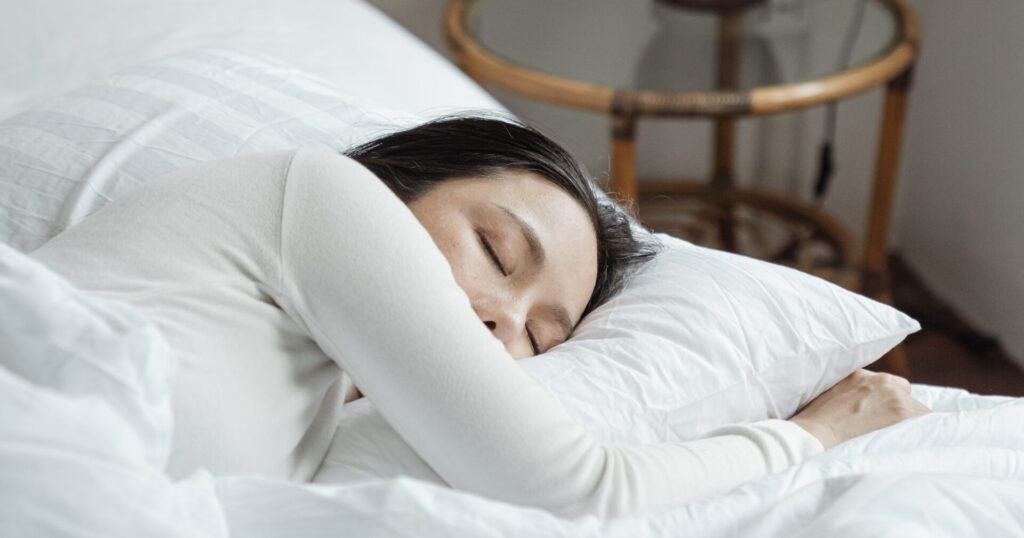
Better Not Younger founder Sonsoles Gonzalez recalls, “I used to suffer from terrible insomnia during perimenopause and menopause that left me really groggy and tired during the day.” She’s not alone. An estimated forty percent of women in their late 40s and beyond experience sleep disruption due to night sweats, hot flashes, breathing issues, and mood disorders.
Gonzalez shares, “Over the years, I found the right combination of small changes that worked for me. I go to bed every night at the same time, eliminate distractions like work and TV close to bedtime, exercise every morning, and take 400mg of magnesium every night and melatonin. Now I’m getting 9 hours of sleep a night and am much happier and more productive.”
Heidi Rauch, Head of Growth at Become Clothing, agrees, “Getting a good night’s sleep is a rare commodity during menopause. What tends to work for me is establishing a regular bedtime, performing certain nighttime rituals like lighting a candle, and having a cup of tea or bath to relax. I also avoid alcohol which can disrupt sleep, limit blue light (i.e., banish the cellphone), find a comfy but cooler temperature for the bedroom, and wear anti-flash nightwear.”
The theme from these two busy female founders is that sleep hygiene makes a difference. Not sure what sleep hygiene is? Head to the Midday app to learn what strategies are most effective. Also, get expert sleep tips, connect your wearable and get personalized sleep insights, track your hot flash triggers, and try Midday’s science-backed hypnotherapy programs to help you fall asleep and stay asleep faster.
Reducing Stress and Anxiety
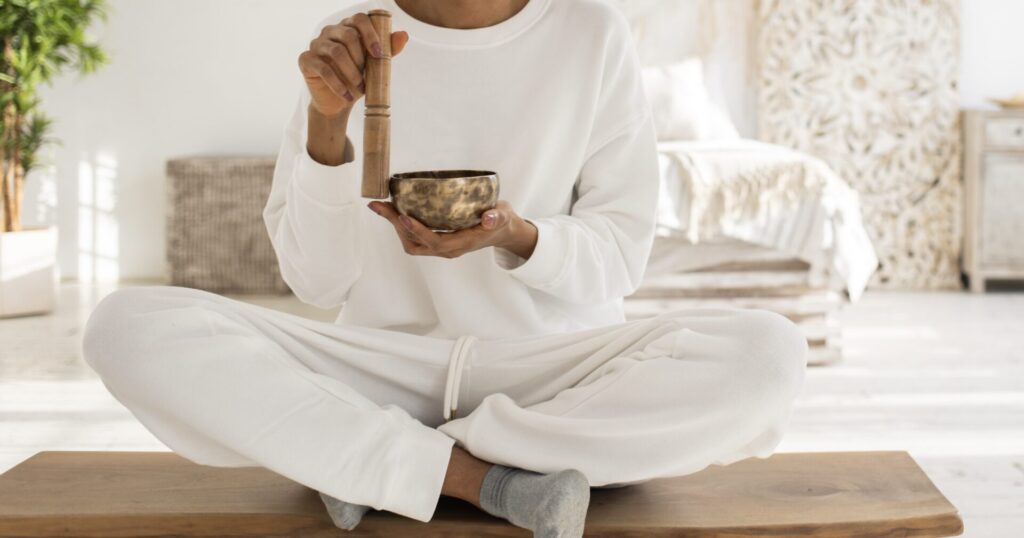
Chronic stress can manifest in myriad ways, from lower sex drive to acne and back pain. Many women in their 50s and beyond report feeling more stressed due to hormonal changes and shifting roles and responsibilities. Anxiety is also a fairly common symptom of menopause. At Midday, we speak to many women dealing with stress and anxiety while working, caring for their children and parents, and managing household responsibilities. It’s a lot to handle for anyone. Taking time for yourself is one of the best things you can do for your physical and mental well-being, and there is a multitude of proven remedies to help bring life into balance.
A great 10-day destress and anti-anxiety challenge is listening to one of Midday’s meditations explicitly designed for midlife women in the Midday app. Listen to one each day, or mix it up. Topics range from ‘Acceptance’ and ‘Breathing to Relax’ to ‘Letting Go.’ They can help you get into the habit of taking time during the day to relax and focus inward.
“I dedicate some time every morning to this app. I absolutely love the acceptance meditation; how it shifts my perspective to know menopause is just a life transition. I’ve learned so much about my symptoms and how to manage them. Thank you, Midday!” – Midday App Subscriber
Eating Healthier
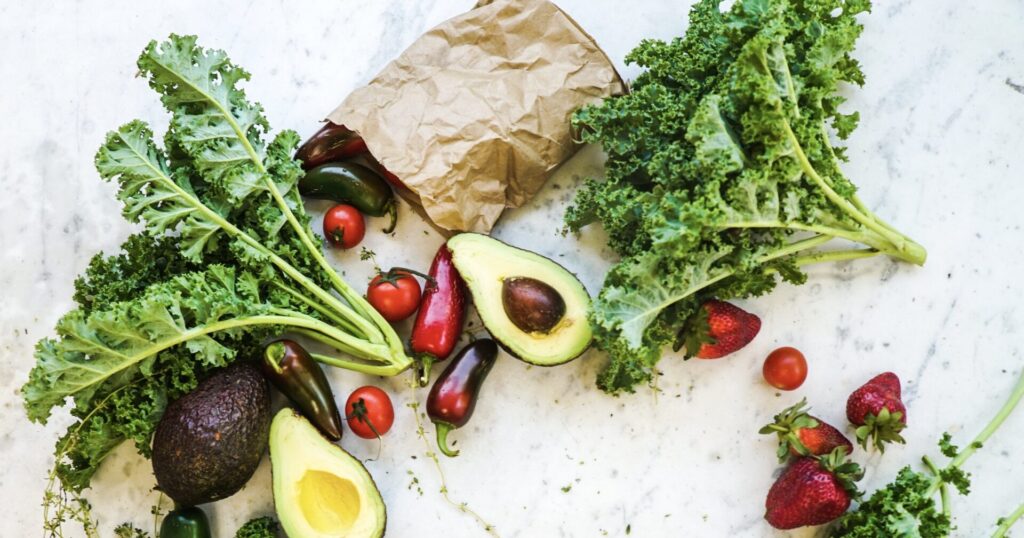
A healthy diet, one that’s plant-forward and comprised of whole foods like fruits, vegetables, whole grains, and quality proteins and dairy products, has been shown to help reduce the severity of menopause symptoms. Eating well can also help you maintain weight and give your body the fuel to age more healthfully.
Our healthy eating habits tend to fall by the wayside over the holidays. For many women, sugar cravings any time of the year are tough to overcome, but especially after the holidays. Get back on track with our Midday App, where you can participate in the 7-Day Sugar Swap Challenge or 7-Day Plant-Based Diet Plan. Or, get inspired by our dietitian-created mindfulness programs based on the principles of intuitive eating, a proven weight loss framework. Our guided audio programs offer quick intervention tools for managing cravings, avoiding binge eating, and more.
Detoxify Your Beauty Routine
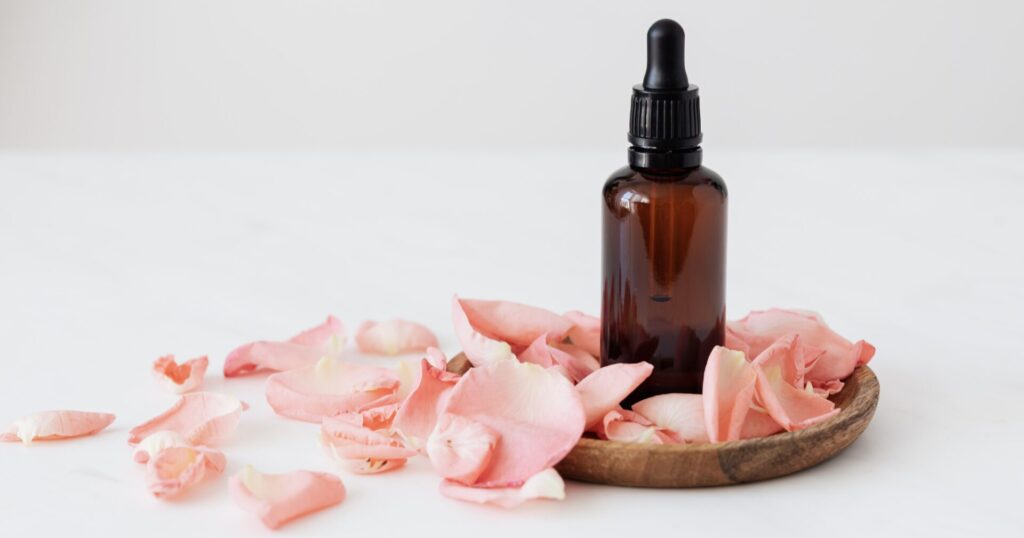
Certain beauty product ingredients have been shown to penetrate the bloodstream. So, what we put on our bodies is just as important as what we put in our bodies. Luckily, the trend towards clean, conscious beauty products is on the upswing – especially within the emerging menopause beauty category – with many new brands foregoing ‘ingredients of concern’ for cleaner formulas.
When Sonsoles Gonzalez was developing Better Not Younger, the first haircare line designed specifically for women 40+, she purposely excluded sulfates, parabens, and other harsh ingredients. These ingredients damage aging hair that tends to be thinner and more fragile. In addition, she found that women over 40 were looking for cleaner beauty products – even in haircare.
Pause Well-Aging Founder Rochelle Weitzner made sure her line of luxurious skincare formulas for women 40+ delivered on aesthetics without all the ‘bad stuff.’ As the first menopause-centric skincare brand, Weitzner wanted to ensure the formulas were vegan, non-GMO, sulfate-free, paraben-free, hormone-free, and cruelty-free, adhering to European Safety Standards, which tend to be even more stringent than those in the US.
Two other small swaps that can yield big health benefits are switching to aluminum-free deodorant and organic pads and liners. Urinary incontinence is surprisingly common among menopausal women. But now, women don’t have to compromise on product design and quality. Leila Brier, Head of Brand at plant-based, eco-conscious personal care brand Attn: Grace, advises, “When shopping for pads and liners to manage menstrual spotting or leaks, look for products with breathable natural materials with no chlorine bleach, artificial dyes or fragrances – all of which can irritate, burn and itch sensitive vaginal skin.”
For more tips on why and how you should transition to a cleaner lifestyle, head to the Midday App, where you’ll learn about ‘3 Reasons to Avoid Scented Products’ to ‘Everyday Toxins & Menopause.’ Midday also offers the latest beauty and personal care products designed specifically for women in the menopause life stage, available at a special price for Midday App subscribers.
How Do I Get Started?
The best way to get started is to identify one small change you want to make. It can be something like turning your devices off two hours before bed, which can lead to feeling calmer and sleeping better. Or, taking a daily 10-minute walk or a mini-yoga session after lunch, giving you an energy boost for the afternoon.
Whatever change you settle on, follow these tips to ensure success:
- Write your micro-resolution down in your journal or somewhere visible. Put a reminder on your calendar daily and check it off when complete. Putting a literal or virtual X through something on your to-do list is immensely satisfying.
- If you journal, write about how it feels to accomplish something every day. Give yourself praise for sticking with your commitment, no matter how small.
- Experts say that forming a new habit takes somewhere between ten weeks and nine months. Your clue that you achieved your goal is that the change becomes second nature, and it bothers you when you don’t do it. For example, you get irritated if your calendar is too packed to squeeze your daily walk in. You don’t even pause to consider the elevator. Or, you are annoyed because you checked your email right before bed and became anxious about a work email, and didn’t sleep well.
What’s the Payoff?

Gaining a sense of self-mastery through small changes contributes to your happiness and confidence and helps you live a happier, more fulfilled life. Any success, no matter how small, makes you feel like a winner.
Midday is here to provide resources, tips and reminders, and community. We hope you’ll join us in making one small change.
Looking for more expert support on a healthy lifestyle in midlife? Download Midday from the App Store or visit us at Midday.Health.
Sign up for more unique women’s health content
By submitting this form, you agree to the Lisa Health Privacy Policy and Terms of Use


